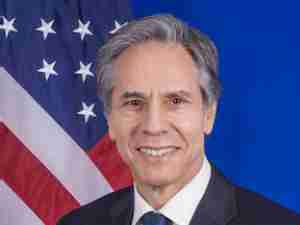Bush's next four years look more difficult.
Both the European Union's Pascal Lamy and the US's Robert Zoellick, the architects of previous harmony, have departed. Tensions simmer over Europe's attempts to woo Iran and China through trade, as well as over aircraft subsidies to Airbus and Boeing Co., and over how to wrap up global trade talks.
Much of Bush's agenda in Brussels - one of his stops on his recent European tour - will be devoted to these questions, though few expect any concrete breakthroughs. In particular, the two sides say they will avoid discussing the deadlocked aircraft negotiations, as there is no deal in sight for now. Instead, the EU is sending a delegation to Washington this week for more talks.
Bush will have a chance to meet with the new European officials handling trade. At a dinner scheduled for Tuesday, Bush will share a table with Peter Mandelson, Europe's new trade commissioner. Others scheduled to attend include EU Commission president Jose-Manuel Barroso, EU foreign policy head Javier Solana, and Jean-Claude Juncker of Luxembourg, who holds the EU's rotating six-month presidency. Mandelson has no fixed US counterpart yet - a new US Trade Representative has yet to be named after Zoellick's departure.
Behind the looming trans-Atlantic disagreements lie deep philosophical divides, analysts suggest. Europe worries that Bush, bogged down in domestic debates and national security concerns, will weaken his country's pursuit of an international trade deal, and focus on bilateral rather than multilateral trade deals. That worry is compounded by a vote in Congress next week on whether Bush should keep the right to seal trade deals. The US believes Europe is willing to overlook human rights violations in return for juicy commercial contracts. Europe says trade can rein in such states as Iran. The US says talk and trade can never substitute for the threat of force.
Iran and China represent test cases of this divide. Europeans are ready to lift an arms embargo on Beijing. The US, after expressing stiff opposition, know that the Europeans will go ahead anyhow and are concentrating on putting in place a stiff code of conduct, which will continue to prohibit the most dangerous European weapons from being exported.
Talks with Tehran are more delicate. And while Washington wants to confront the government in Tehran over its suspected nuclear weapons development with a tough line, threatening sanctions and holding out the possibility of military action, Europeans continue to negotiate. They are offering Iran commercial incentives in return for a voluntarily abandonment of its uranium enrichment program.
European officials say they will lobby Bush to give his tacit support of talks with Iran, suggesting that otherwise he risks causing their collapse. Bush will warn against searching for commercial advantage with the large Iranian oil industry and burgeoning domestic market.
"If there are commercial reasons for a trade agreement with Iran, then the EU will pursue it," says Sandra Polaski, Senior Associate and Project Director for Trade, Equity and Development at the Carnegie Endowment for International Peace.
In contrast, she says the US stance on Iran shows that Washington isn't interested in opening up trade "unless a country is not going to be helpful in a foreign-policy way."
This approach worries Europeans because it means Bush may target bilateral trade deals, neglecting multilateral negotiations. Over the past year, the US has sealed deals with Australia - an ally on Iraq - as well as with Middle Eastern nations Bahrain and Saudi Arabia, and Morocco.
Europe instead wants to focus on st









